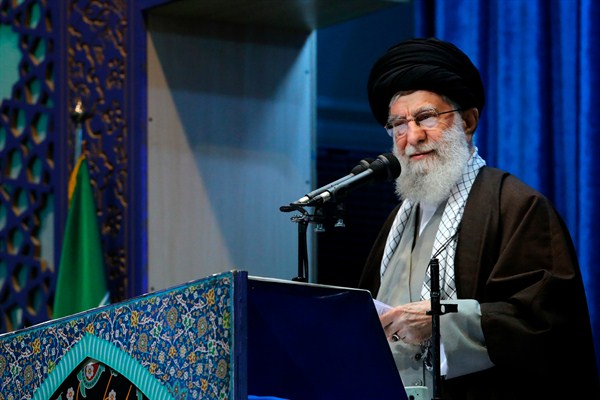In three weeks, Iranians will go to the polls to choose a new parliament. For President Hassan Rouhani, a relative moderate and ardent supporter of the now-moribund international agreement curbing Iran’s nuclear program, the parliamentary vote on Feb. 21 could be the first note in his political swan song. With some 90 percent of Iran’s reform candidates disqualified in a decision issued by the hard-line Guardian Council this week and reformists threatening an election boycott, it seems highly unlikely that Iran’s pro-reform bloc will be able to stitch together much of a showing at the polls. That’s bad news for Iranians, and probably for Americans too.
The tattered state of Iran’s reformers, who are led by Rouhani, underscores the high cost of the Trump administration’s decision to assassinate the top Iranian military commander, Maj. Gen. Qassem Soleimani, in early January. Any hope that the nuclear deal could be saved from the dumpster fire of Trump’s Iran policy was lost the day a U.S. drone strike took Soleimani out in Iraq. The latest machinations around the upcoming parliamentary elections suggest that before things get better in Iran, they are bound to get much worse. This is a problem Washington will have to face, whether it’s the Trump administration or a new Democratic administration this time next year.
With Soleimani gone and Supreme Leader Ayatollah Ali Khamenei in poor health and turning 81 in April, conservatives and hard-liners alike are closing ranks in anticipation of a major shakeup of the hierarchy in Tehran. The Guardian Council’s move to cut reformist and moderate candidates out of the competition for parliament’s 290 seats leaves roughly 5,000 revanchist candidates on the rolls, potentially positioning the hard-liners to dominate parliament for the next four years.

